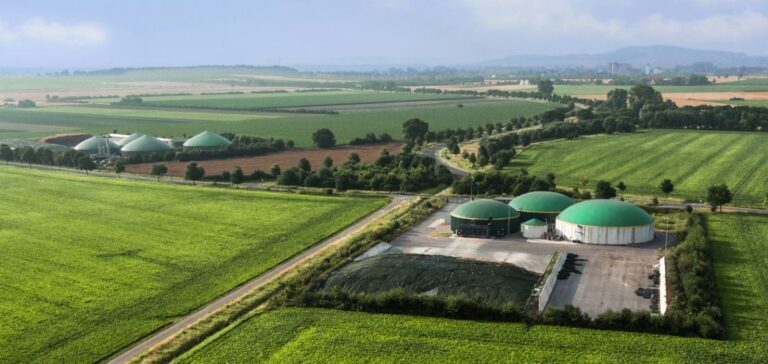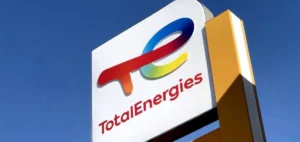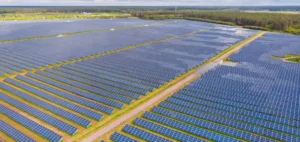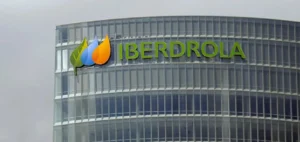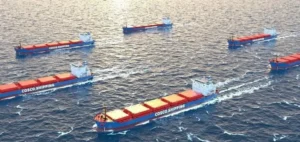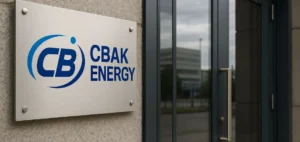France’s gas sector is reorganizing in response to new climatic and economic requirements.
According to recent projections by the main players, gas consumption in the country is set to fall by 30% by 2035.
This reduction is part of efforts to meet the European Union’s “Fit for 55” program, which aims to reduce greenhouse gas emissions by 55% by 2030 compared with 1990 levels.
To achieve this goal, the strategy is based on two main thrusts: improving energy efficiency and increasing the share of renewable gas.
The gas sector is focusing on energy sobriety and energy efficiency solutions to reduce overall demand.
At the same time, the production of renewable gas is accelerating rapidly.
In 2023, renewable gas production capacity stood at 12.5 TWh.
Forecasts indicate a rise to 60 TWh by 2030 and 120 TWh by 2035.
The introduction of new financing mechanisms, such as biogas production certificates, has played a key role in this development.
Development of Renewable Gas Technologies
The acceleration of renewable gas production is based primarily on the development of biomethane, considered a viable alternative to natural gas.
This renewable gas could reduce greenhouse gas emissions by 80% compared with fossil gas.
For a long time, growth in this sector was held back by low regulated feed-in tariffs, but these have now been revised, helping to boost the market.
The sector is also exploring cutting-edge technologies such as pyrogasification and hydrothermal gasification.
These processes use dry and wet biomass, respectively, to produce high-temperature gas.
However, these technologies are still in their infancy and require substantial investment to achieve commercial viability.
Experts are waiting to see whether regulatory support and funding mechanisms will be sufficient to promote these innovations.
Impacts on Networks and Demand
The anticipated drop in gas consumption is also a key point.
In 2023, France consumed around 400 TWh of gas, but forecasts estimate a reduction to 321 TWh in 2030 and 282 TWh in 2035.
This reduction is largely based on sobriety actions and energy efficiency improvements.
The industry expects these efforts to stabilize infrastructure costs and maintain the profitability of distribution networks.
In this context, maintaining the number of consumers is crucial.
If subscriber numbers fall too sharply, infrastructure costs per user could rise, impacting distribution tariffs.
Network operators such as GRDF have already begun deploying smart meters to better understand and manage energy consumption.
These devices aim to offer tailored solutions to encourage more rational energy use.
Economic and regulatory issues
Moving towards renewable gas and reducing fossil gas consumption raises a number of economic and regulatory issues.
New pricing policies and support mechanisms such as biogas production certificates require constant evaluation to ensure they meet market expectations and investor requirements.
These policies must balance the need to finance infrastructure with cost-competitiveness for consumers.
In addition, the regulatory uncertainty surrounding new renewable gas technologies, such as pyrogasification, underlines the need for a clear and stable framework to encourage innovation and investment.
To date, a call for projects for pyrogasification is still pending, which is delaying the development of this sector.
Investors and project developers are keeping a close eye on political decisions that could influence the future direction of France’s energy transition.
Outlook for the French Gas Industry
The French gas industry is undergoing a major transformation, adapting to climate imperatives and economic pressures.
The goal of increasing the share of renewable gas to 40% or 45% by 2035 poses considerable challenges in terms of technology, financing and market acceptance.
Industry players must navigate between innovation and profitability, while meeting the expectations of regulators and consumers alike.
The future of gas in France will depend on the ability of all stakeholders to collaborate and innovate.
The rise of renewable gas, coupled with robust energy efficiency strategies, could well define the next decade of the French energy landscape, while contributing to climate and energy objectives on a European scale.

